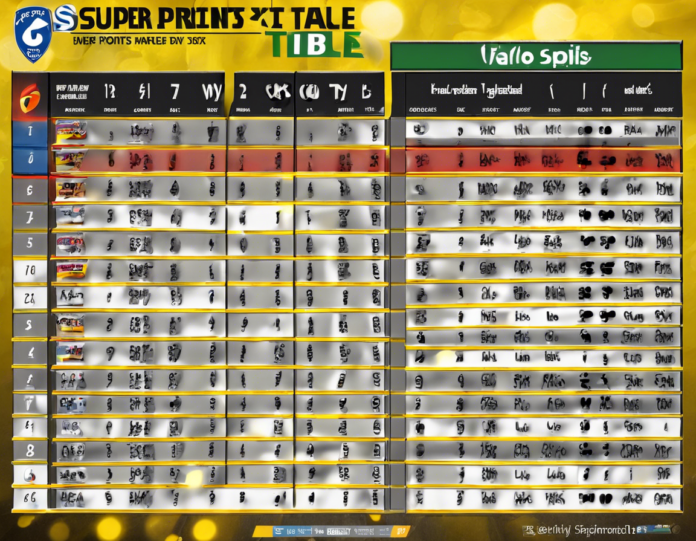The Super Six format is a round-robin tournament structure used in various sports to determine the top teams that will advance to the knockout stages or finals. It is commonly employed in cricket, rugby, and other team-based sports to increase excitement and competition in the later stages of a tournament. In this blog post, we will delve into the latest Super Six Points Table update, highlighting the standings, key performances, and implications for the upcoming matches.
Understanding the Super Six Format
Before diving into the current points table update, let’s first understand how the Super Six format works in a typical tournament. In this format, teams that have progressed from the initial group stages compete in a new round of matches against a smaller pool of opponents. The results of these matches determine the final ranking of teams and their progression to the next stage of the tournament.
Latest Super Six Points Table Update
Now, let’s take a closer look at the latest Super Six points table update in a hypothetical cricket tournament:
Team Standings
- Team A – Played 4, Won 3, Lost 1, Points 6
- Team B – Played 3, Won 2, Lost 1, Points 4
- Team C – Played 4, Won 2, Lost 2, Points 4
- Team D – Played 3, Won 1, Lost 2, Points 2
- Team E – Played 4, Won 1, Lost 3, Points 2
- Team F – Played 3, Won 1, Lost 2, Points 2
Key Performances
- Player X from Team A has been the standout performer with two centuries in the Super Six matches.
- Team B’s bowling attack has been instrumental in their success, picking up crucial wickets in tight situations.
- Despite their position in the standings, Team E has shown flashes of brilliance with close finishes in several matches.
Implications & Scenarios
- Team A has already secured a spot in the finals with their dominant performances.
- Teams B, C, and D are in a tight race for the remaining final spot, with net run rate likely to play a crucial role in the final standings.
- Teams E and F will be looking to finish the Super Six stage on a high note and carry momentum into the next tournament.
FAQs (Frequently Asked Questions)
Q1: How are points calculated in the Super Six stage?
Points are typically awarded for wins, with bonus points sometimes given for specific achievements like scoring a certain number of runs or taking wickets. In cricket, a team usually receives 2 points for a win and 1 point for a no-result or tie.
Q2: What happens if two teams are tied on points in the Super Six stage?
In case of a tie in points between two or more teams, the net run rate (NRR) is used as a tiebreaker to determine the final standings. NRR is calculated by comparing the number of runs scored and conceded by a team in the matches played.
Q3: Can a team qualify for the finals before all Super Six matches are completed?
Yes, if a team secures enough points to guarantee a top-two finish before all matches are completed, they can qualify for the finals. This often happens when a team wins all their matches early in the Super Six stage.
Q4: Are there any restrictions on player substitutions or squad changes in the Super Six stage?
Depending on the tournament rules, there may be restrictions on player substitutions or squad changes during the Super Six stage. Teams are usually required to finalize their squads before the start of the tournament and make any changes within a specified timeframe.
Q5: What strategies do teams employ in the Super Six stage to secure a spot in the finals?
Teams often focus on maximizing their points through aggressive gameplay, strategic bowling changes, and calculated risks to secure wins. They also pay close attention to their net run rate to ensure they have an advantage in case of tiebreakers.
In conclusion, the Super Six stage of a tournament adds an extra layer of excitement and competitiveness as teams battle it out for a spot in the finals. The latest points table update, key performances, and implications provide fans with a clearer picture of how the tournament is unfolding. Stay tuned for more thrilling matches as teams vie for supremacy in the Super Six stage!












